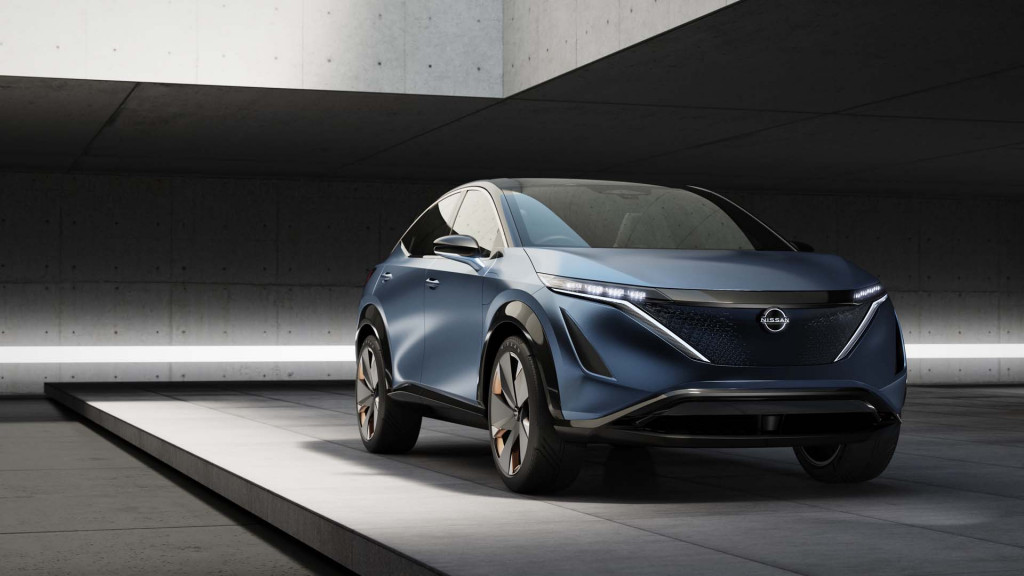A decade ago, Nissan helped kick off the modern era of electric cars with the first-generation Leaf. But now the automaker is setting fairly conservative targets for emissions reductions.
A Nissan press release said the automaker aims to achieve carbon neutrality for its operations and vehicle life cycles by 2050. To achieve that goal, Nissan will examine raw-material extraction and manufacturing, as well as develop a "battery ecosystem" that will use battery packs as stationary power sources in order to clean up the electricity grid.
However, plans to reduce emissions from Nissan vehicles themselves seem unambitious.
Nissan said it would electrify every model in the "key markets" of Japan, China, the United States, and Europe by the early 2030s. That goal doesn't apply to the rest of the world, and could include hybrid and mild-hybrid vehicles in addition to all-electric models.

Nissan Ariya Concept
It's a big change from a decade ago. Nissan originally had high-volume plans for the Leaf, and aimed to produce 500,000 electric cars—including the Leaf and other models—by 2012. However, the Leaf has remained Nissan's only globally-available EV, and the 500,000th example wasn't built until 2020.
The only other all-electric model Nissan currently sells is the e-NV200 van, which isn't available in the U.S. The 300-mile Ariya crossover is scheduled to arrive later this year, and may cater to a wider market than the Leaf.
Although the Note hatchback has gone all-hybrid in Japan, Nissan hasn't offered a comparable high-efficiency model for the U.S. Nissan still hasn't introduced its long-anticipated E-Power hybrid system here, either.
Nissan's tack is a pragmatic one. Although there will be serious market movement to EVs sooner in Europe, China, and the U.S., among other markets, EV sales aren't anticipated to pass those of internal-combustion vehicles until sometime after 2035.












